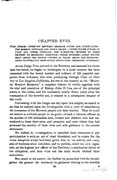
[p. 273]
CHAPTER XVIII.
Utah Judges—Interview Between Brigham Young and Judge Titus—The Mormon Officials And Judges Drake—United States Judges of Utah and Other Officials—The Morrisites—Murder of Their Prophet By Brigham's Direction—Other Murders—Great Excitement Among the People—System of Trade Among The Mormons—Zion's Co—operative Mercantile Institution—Brighams Autocracy.
After Judge Titus arrived in the Territory and assumed his duties upon the bench, he began to investigate in a quiet manner the facts connected with the brutal murder and robbery of 128 peaceful emigrants from Arkansas, who were journeying through Utah on their way to Los Angeles, California, known to the country as the "Mountain Meadow Massacre," a complete history of which, together with the trial and execution of Bishop John D. Lee, one of the principal actors in the crime, and his confession nearly thirty years after the commission of the horrible act, is related in a subsequent chapter of this work.
Conversing with the Judge one day upon this subject, he stated to me that he entered upon the investigation with a view of establishing the innocence of the Mormon people and their leaders. That he could not believe a civilized people to be guilty of such a heinous offense as the murder of 128 defenseless men, women and children who had surrendered to them their arms and property, and unto whom they had promised the security of their lives and safe guidance to the nearest settlement.
He wished, by investigation, to establish their innocence of any participation in such an act of cruel bloodshed, and in return for the warm reception which had been given him on his arrival, and many acts of kindness since extended, and to publish, under his own signature, as the highest law officer of the Territory, a substantial denial of the allegation, and thus wipe out the stain which blotted their escutcheon.
But, much to his sorrow, the further he proceeded with the investigation the greater the testimony he gathered relating to the horrible
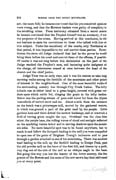
[p. 274]
act; the more fully he became convinced that his preconceived opinions
were wrong, and that the Mormon leaders were guilty of complicity in
the revolting crime. From testimony obtained from a secret source
he became convinced that the Prophet himself was an accessory, if not the projector of the crime. Having arrived at this conclusion, he did
not hesitate to state his convictions to those who talked with him on
this subject. Under the machinery of the courts, only Territorial at
that period, it was impossible to try and convict these parties.
Nevertheless the stern old Judge declared that had he the power he would bring them before his court and convict them of the offense, if possible.
Of course it was not long before this declaration on the part of the
Judge reached the Prophet's ears, and becoming quite indignant at the charge, all intercourse ceased at once between the head of the
church and the chief justice.
Judge Titus was an early riser, and it was his custom to take long morning walks among the foothills of the mountains and other points of interest in the neighborhood. One of the most beautiful walks of the surrounding country was through City Creek Cañon. The lofty hillside rose at either hand to a great height, covered with green verdure upon which cattle fed, clinging like goats to the lofty incline. Below was the purling stream of pure cold water fed from the Alpine watersheds of melted snow and ice. About a mile from the entrance on the bench was a picturesque mill, moved by the gathered waters, in which was ground a part of the grist used by the people. Little gardens here and there dotted the narrow landscape, and at intervals a field of waving grain caught the eye. Overhead was the clear blue ether, the purple haze, the rolling waves of cloud and sunlight reflected on the sparkling waters below and in moving shadows upon the mountain sides. No more beautiful spot was to be found anywhere, but to reach it and follow the footpath leading to the mill you were compelled to open one of the gates of Brigham Young's inclosures and to pass through a garden attached to one of his structures. There was another road leading to the mill, up the foothill leading to Ensign Peak, past the old powder mill on the brow of the first hill, and thence by a path, way dug out of the side of the soil at an oblique angle to the base. But going this way you lost the beauty of the lower scenery, the fragrance of the flowers and the scent of the new-mown hay that enlivened you at every point.
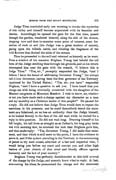
[p. 275]
Judge Titus concluded early one morning to invoke the mysteries of this valley and himself become acquainted with its beauties and charms. Accordingly he opened the gate for the first time, passed through the garden, wandered leisurely along the side of the stream, stopping now and then to examine some point of interest, some formation of rock or soil (the Judge was a great student of nature), gazing upon the hillside cattle, and inhaling the fragrance of the wild flowers that decked the sides of the stream.
Thus he proceeded to the mill and returned as leisurely as he went. From a window of his mansion Brigham Young had beheld the tall form of the Judge strolling thus through his grounds, and on his return intercepted him near the gate with the remark, "I believe this is Judge Titus." "Yes, sir," promptly responded the Judge, "and I believe I have the honor of addressing Governor Young" (he always called him Governor, having been the first governor of the Territory appointed by the United States.) "Yes, sir; you have" responded Brigham, "and I have a question to ask you. I have heard that you charge me with being criminally connected with the slaughter of the Missouri emigrants at Mountain Meadow. I wish to know, sir, whether or not you have made such a charge against my character as a man and my morality as a Christian leader of this people?" He paused for a reply. He did not believe that Judge Titus would dare to repeat the assertions in his presence, and he could thenceforth brand the statement as a falsehood, on no less an authority than the Judge himself, so he looked fiercely in the face of the old man while he waited for a reply to this question. He did not wait long. Drawing himself to his full height, his tall form as straight as an Indian's, his long gray locks wet with morning dew, he returned the look that Brigham gave him, and thus made reply: "Yes, Governor Young, I did make that statement, and that which is still more to the point, I have the evidence to prove it, and if the system prevaling in the Territory in the summoning of jurors to try such causes, admitted of a fair and impartial trial, I would bring you before my court and convict you and other high leaders of your church of that cruel and bloody offense against humanity and the law of your country."
Brigham Young was perfectly dumbfounded at this bold avowal
of the charge by the Judge, and scarcely knew what to reply. At last,
summoning his ideas, he pronounced the charge and the statement
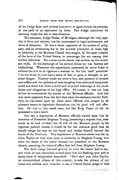
[p. 276]
of the Judge false, and ordered him never to again invade his premises,
at the peril of an ejectment by force. The Judge continued his
morning walks but not in that direction.
His associate, Judge Drake, of Michigan, although the very opposite in form and stature, was his counterpart in legal attainments and force of character. He was a bitter opponent of the system of polygamy, and an unrelenting foe to the avowed principles of those high in authority in the Mormon Church who sought, by the open violation of the laws of the United States, to encourage the act among their lowlier followers. His course on the bench was as firm as the mountain walls. In the discharge of his judicial duties he was fearless and unflinching. Whenever the opportunity presented, he never failed to enforce the law in as vigorous a manner as the law itself permitted. I do not think he ever had a sense of fear or gave a thought to personal danger. Flattery could not swerve him, and presents of shrouds and coffins and the pictures of men dangling from poles and lamp posts, could not deter him from a strict and impartial discharge of his sworn duties and obligations of his high office. Of course, it was not long before he encountered the hatred of the Mormon officials. And this was more apparent from the fact that upon his entrance into the Territory, he was siezed upon by these same officials who sought by all pleasant means to ingratiate themselves into his good will and affection. He was a very small man, but like King Pepin of old, he possessed a lion's heart.
One day a deputation of Mormon officials waited upon him by direction of President Brigham Young, presenting a request that, inasmuch as he had invoked the ill will of the Mormon people by his rigorous judicial course, it would be for the common good that he should resign his seat on the bench and betake himself beyond the limits of the Territory. This deputation of Mormon elders was led by John Taylor, at that time next in authority to Brigham Young, who after the death of the latter became the president of the Mormon church, assuming the robes of office that fell from Brigham Young.
The little Judge listened gravely to what the leader had to say,
and when he had concluded, turned upon him his flashing eyes, and in
sharp tones of indignation remarked: "How dare you, John Taylor,
an unnaturalized citizen of this country, invade the privacy of my
house and address such remarks to me, a United States judge of this
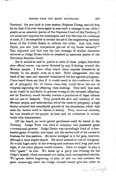
[p. 277]
Territory? Go you back to your master, Brigham Young, and tell him
for me that if he ever dares again to send such a message to me while I
preside as an associate justice of the Supreme Court of this Territory, I
will arrest and imprison his messengers, and him likewise, forcontempt
of court, if I be compelled to invoke the aid of the neighboring military
forces of the United States to enforce the order. And now, John
Taylor, you and your companions get out of my house instantly!"
They departed, and that was the last message of similar character
delivered to Judge Drake while he presided as associate justice of the Territorial Supreme Court.
But it should be said in justice to both of these judges, that their stern official course was never dictated by any ill-feeling toward the Mormon people. I have often heard them express themselves as friendly to the people even as a sect. Their antagonism was the result of the open and repeated violations of the law against polygamy. I have heard them say that if it would result in the overthrow of the act of polygamy for all future time, they would favor the act of Congress legalizing the offspring then existing. They held that such an act would be justifiable to prevent wrong to the innocent offspring, and the Territory would thereby contain a population of legal citizens and not one of bastards. They praised the skill and industry of the Mormon people, and believed that, rid of the curse of polygamy, a high destiny awaited this remarkable growth of the mountains, which had made the barren earth to bloom in beauty. They were not enemies, but true friends of the people, as time and its evolutions in society would fully demonstrate.
Off the bench no more genial gentlemen could be found in the
Territory. Judge Titus was fond of company and possessed great
conversational powers. Judge Drake was exceedingly fond of a
fourhanded game of euchre, and many are the stories told of his excessive
fondness for this pastime. He never indulged in it for gain, however,
although a most expert player. He never seemed to tire of the game.
He would begin early in the evening and continue until long past midnight,
if the other players would consent. Once we sought to play a
little "game" on him. We made up a party one evening, for the
Judge's benefit, which embraced two ladies, both accomplished players.
We agreed, before beginning, to play on and on, and continue the
game unceasingly until the Judge himself should give the order to
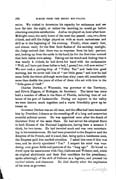
[p. 278]
retire. We wished to determine his capacity for endurance and see
how far into the night, or rather the morning, he would go before
obtaining complete satisfaction. And so we played on, hour after hour.
Midnight came, the early hours of the next day passed—one, two, three
o'clock, and still the Judge played on with as much earnestness and
skill as in the beginning of the evening. Finally, when nearly four,
and almost ready for the first faint dashes of the morning sunlight,
the Judge noticed that there was no response from his lady partner,
and, looking up from the cards in his hand, he for the first time noticed
that both ladies were asleep. Taking out his watch and finding that it
was nearly 4 o'clock, he laid down his hand with the exclamation
"Well, as I have put these ladies to bed, I guess I too, will now retire!"
We now took a parting drop of "Valley Tan" and bade him good
morning, but we never told him of "our little game" and how he had
come forth the victor, although more than sixty years old, considerably
more than double the years of either of them who sat with him in the
"little game of bluff."
Charles Durkee, of Wisconsin, was governor of the Territory, and Edwin Higgins, of Michigan, its Secretary. The latter has since held a number of offices in the State of Florida, including that of collector of the port of Jacksonville, During our sojourn in the valley we were thrown much together, and a warm friendship grew up between us.
Governor Durkee was an old man, and the office had been tendered him by President Johnson as the rounding off of a long and somewhat eventful political career. He was appointed soon after the death of Governor Doty of the same State. He had served his adopted State in both Houses of the National Legislature, having been a senator, I think, for two terms. He had traveled much and was very entertaining in his reminiscences. He had been presented to the Emperor and the Empress of the French, and it is said, that, being quite a handsome man, the Empress paid him marked attention. I asked him once if this was true, and he slowly ejaculated "Yes." I suspect his mind was wandering over green Helds and pastures of the "long ago." He loved to dwell upon his associations with Clay, Calhoum and Webster, and, while an original abolitionist and their first candidate for the presidency, spoke admiringly of the skill of Calhoun as a logician, and praised his exalted talents and character. He died shortly after the expiration of his term as governor.
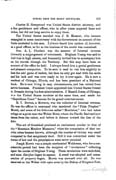
[p. 279]
Charles H. Hempstead was United States district attorney, and a fine gentleman and officer, who in after years acquired fame and riches, but did not long survive to enjoy them.
The United States marshal was J. R. Hosmer, who became entangled in some controversy with the Government on account of the funds entrusted to his care. I always heard him spoken of, however, as a good officer, so far as the business of the courts was concerned.
Gen. A. L. Chetlain was the assessor of Internal revenue (formerly a major-general of volunteers). Brigham Young was said to hold him in high esteem, and frequently invited him to accompany him on his travels through the Territory. But this may have been on account of the office he held. I always found him a genial gentleman and pleasant companion. To be sure it used to vex him mightily to lose the odd game of euchre, but then he only got mad with the cards and his luck and was ever ready to try it over again. He is now a resident of Chicago, Illinois, and has been president of a National bank. He is now living in easy circumstances, and has retired from active business. President Grant appointed him United States Consul to Brussels during his first administration. J. Russell Jones, of Chicago, was the United States minister at the same time, and made his "Republican Court" famous for its grand entertainments.
R. T. Burton, a Mormon, was the collector of Internal revenue. He was the officer in command who murdered the "False Prophet" Morris, and some of his followers called "Morrisites," who had taken refuge at apoint near the Weber River, where the Pacific Railroad now issua from the cafron, and before it detaura toward the line of the lake.
This act of bloodshed produced an excitement similar to that of the " Mountain Meadow Massacre," when the commission of that terrible crime became known, although the number of victims was small compared to that sanguinary deed. Still it was committed under the forms of law and the perpetrators were never punished.
Joseph Morris was a simple uneducated Welshman, who for a
considerable period had been the recipient of "revelations" reflecting
upon the course of Brigham Young. These revelations were multifold, and soon disciples began to appear. A creed was adopted and
consecration of property began. Morris was steward over all. He was received on the Weber with open arms by the Bishop of Kingston Fort,
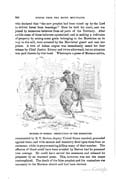
[p. 280]
who declared that "the new prophet had been raised up by the Lord
to deliver Isreal from boandage." Here he held his court, and was
joined by numerous believers from all parts of the Territory. After
awhile some of these believers apostatized, and in seeking a redivision
of property by seizing some grain belonging to the Morrisites on its
way to the mill, were arrested by the Morrisites' guard and cast into
prison. A writ of habeas corpus was immediately issued for their
release by Chief Justice Kinney and twice afterward, but no attention
was paid thereto by this band. Whereupon a posse of Mormon militia,
MURDER OF MORRIS.DESTRUCTION OF THE MORRISTIES.
commanded by R. T. Burton, deputy United States marshal, proceeded against them, and with cannon and musketry fired upon them from an eminence, while in prayer meeting, killing many of their number. This effusion of blood could have been avoided by Burton had he possessed true courage. He could have served the summons and released his I prisoners by an unarmed posse. This, however, was not the means contemplated. The death of the false prophet and his counselors was necessary to the Mormon church and had been decreed.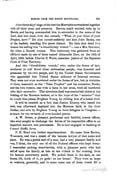
[p. 281]
After three days' siege of the fort the Morrisites surrendered together with all their arms and property. Burton, much excited, rode up to Morris, and having commanded him to surrender in the name of the Lord, shot him dead, with the remark, "What do you think of your Prophet, now?" He then turned suddenly and shot John Banks, one of the leaders, standing fire paces distant. He then shot dead two women for calling him "a bloodthirsty wretch" one a Mrs. Bowman, the other a Danish woman. This testimony was gathered from an affidavit made by one of them named Alexander Daw, on the 18th of April, 1863, before Charles B. Waite, associate justice of the Supreme Court of Utah Territory.
And this "bloodthirsty wretch," who, under the forms of law, murdered in cold blood these defenseless people, was honored and promoted by his own people, and by the United States Government who appointed him United States collector of Internal revenue. They were not even murdered under the forms of law, but in violation of them, inasmuch as the "False Prophet" and his counselor, Banks, and the two women, one with a babe in her arms, were all murdered after their surrender. This atrocious deed was committed either at the bidding of the Mormon leaders, or in the hope of the "monster" that he would thus please Brigham Young by ridding him of a hated rival.
It will be recalled as a fact that Justice Kinney, who issued the writ, was afterward baptized into the Mormon faith in the river Jordan, and sent by Brigham Young as their delegate in Congress—so much for the rewards of even-handed justice.
A. W. Street, a pleasant gentleman and faithful, honest officer, who ever sought to discharge the duties of his responsible office in an impartial manner, was postmaster. He is now engaged in banking at Council Bluffs, Iowa.
F. H. Head was Indian superintendent. He came from Racine,
Wisconsin, and was a cousin of the famous lawyer of that name and place. He was a genial sort of a man, had a very pleasant family and
was, I think, the only one of all the Federal officers who kept house.
I remember picking strawberries, with a pleasure party who had
called upon his family, as late as ten o'clock in the evening, from
his famous strawberry patch. We picked them in the dark, on our
knees, Oh, think of it, ye gods! on our knees! They were as large
as walnuts, generally, and in some cases one of them would fill a
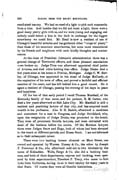
[p. 282]
small-sized tea-cup. We had no need of a light to pick such mammoths
from a vine. And besides that we did not want a light, there were a
good many pretty girls with us, and we were young and engaging, and
nobody could detect a kiss in the dark in exchange for the biggest
strawberry we could find. Mr. Head is now a resident of one of
Chicago's beautiful suburbs and has gathered other "crops of plenty" than those of his mountain strawberries, but none more remembered
by his friends and neighbors with such kindly thoughts and reminiscences.
At the close of President Johnson's administration there was a general change of Territorial officers, and these pleasant associations were broken up. Judge Titus was afterward appointed chief justice of Arizona, and died while holding that office. Judge Drake died a few years since at his home in Pontiac, Michigan. Judge C. W. Hawley, of Chicago, was appointed in the stead of Judge McCurdy, at the expiration of his term of office, and proved a faithful and efficient member of the court, and has left behind him a good record. He is again a resident of Chicago, passing the evening of his days in peace and happiness.
Of the bar of that early period I recall Thomas Marshall, of the Kentucky family of that name, and his partner, R. M. Carter, who died a few years afterward at Salt Lake City. Mr. Marshall is still a resident and practicing lawyer of that city, and has acquired much wealth in his profession. Also R. H. Baskin, afterward a candidate and contestant for a seat in Congress, and Judge Strickland, who, upon the resignation of Judge Drake, was promoted to the bench. They were all prominent Gentile lawyers, and were entrusted with most of the business before the courts, Of the Mormon lawyers there were Judges Snow and Hoge, both of whom had been elevated to the bench at different periods, and Hosea Stout. I aM not informed as to their subsequent career.
There were two banking houses situated on Main Street, one owned and operated by Warren Hussey & Co., the other by Joseph F. Noumnan & C0., who afterward sold out to two brothers by the naine of Kiskardden. Wells, Fargo & Co. also did a banking business, and both of their departments. express and banking, were operated by their superintendent. Theodore F. Tracy, who came to Salt Lake from California, having been in their employ for many years in that State. Of course they were all Gentile institutions.
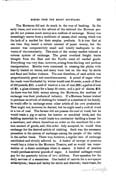
[p. 283]
The Mormons did not do much in the way of banking. In the
early times, and even to the advent of the railroad the Mormon people
did not possess much money as a medium of exchange. Money was
exceedingly scarce from a multitude of causes, chief among which was
the lack of a market for their surplus products. It is true that at
one time they issued a certain amount of paper money, but the
amount was comparatively small and totally inadequate to the
wants of the community. This state of the money market induced a
curious system of exchange. The great overland freight trains
brought from the East and the Pacific coast all needed goods,
Everything was very dear, however, arising from the long and perilous
transportation. Months were consumed in crossing the plains with
heavily loaded ox trains, and many were lost on the way by storm
and flood and Indian violence. The cost therefore, of each article was
proportionately great and sometimes scarce. A pound of sugar when
the roads were blockaded by winter would cost 50 cents; a sack of flour
of 100 pounds, $50; a cord of wood or a ton of coal,$25; a gallon of coal
oil $3; a glass chimney for a lamp 50 cents; and a pair of skates, $12.
As there was but little money among the Mormons, the medium of
exchange was their products of industry. If a Mormon farmer wished
to purchase an article of clothing for himself or amember of his family,
he would oder in exchange some other article of his own production
That might not, however, be desired, but he might need a cord of wood
or a ton of coal. The farmer did not possess the coal or wood, but he
would trade a pig or calves for lumber or sun—dried brick, and the
building materials he would trade to a contractor building a house for
a merchant, and obtain therefrom an order on the merchant for a certain
amount of goods, aud, this order duly accepted, he would then
exchange for the desired article of clothing. Such was the necessary
procedure in the system of exchange among the people of the valley
in the earlier times. There was, however, a regular rate of exchange
established and strictly adhered to. A bushel of turnips or potatoes
would buy a ticket to the Mormon Theatre, and so would ten watermelons
or a dozen cantelopes when in season. A bushel of peaches
would purchase several pounds of sugar. A hundred cabbages would
pay for the quarterly tuition of two children. Four squashes for the
daily services of a seamstress. One bushel of carrots for a newspaper
subscription; beans and barley for shirts and drawers; buckwheat, for
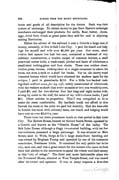
[p. 284]
boots and goods of all description for the doctor. Such was their
system of exchange. To obtain money to pay their Eastern exchanges
merchants exchanged their products for cattle, flour, butter, cheese.
eggs, dried fruit, which at great pains they sold for cash in adjoining
mining Territories.
Before the advent of the railroad it cost a Gentile a large sum of money, annually, to live in Salt Lake City. I paid for board and lodgings for myself and wife over $1,900 per year. Our room, about twelve feet square (we had but one), contained a bedstead of very ordinary construction, a woolen carpet of common texture, a small pinewood center table, a wash—stand, pitcher and basin of whiteware, a small—sized looking—glass and four chairs. There was neither closet, clothes press, bureau, rocking—chair or a single ornament to adorn the room, not even a rack or a shelf for books. For an old cherry—wood veneered bureau which would have charmed the modern taste for the anitique, I paid in green backs $110. For a little low—backed rocking chair without arms, for my wife rudely constructed of whitewood, with the rockers so short that every moment or two you wouldtip over, I paid $9; and for two shelves four feet long and eight inches wide, strung by cords to the wall, for some of my wife's choice books, I paid $11. Other articles in proportion. This I was compelled to do to make the room comfortable. My landlady could not afford to thus furnish the room at the price we paid her monthly. Had she been able to furnish the room with ordinary taste, our board and lodging would have cost us over $2,400 a year.
There were but three prominent hotels at that period in Salt Lake
City. The Revere House, located on Second South Street,operated hy
a Gentile and known as the "Gentile House" of the valley. The
Salt Lake House, although a dingy two—storied building, with but few
conveniences, possessed a large patronage. It was situated on Main
Street, next to Wells, Fargo & Co.'ss large stone—front building, and
was owned by Brigham Young and operated by one of his numerous
sons—in—law, Ferrimore Little, It contained the only public bar in the
city, save one, and was a great resort for the miners who came in from
their dull abodes in the mountains to spend the winter and their money
at this "city of refuge." The third and more fashionable place was
the Townsend House, situated on West Temple Street, and was named
after its owner and operator. It was in many respects a first—class
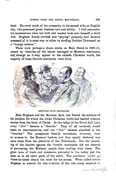
[p. 285]
hotel. He owed much of his prosperity to his second wife, an English
lady, who possessed great business tact and ability, I well remember
her lamentations when her lord and master took unto himself a third
wife. Brigham finally coveted this "paying" property, and became
posessed of it in some way or other by sending Brother Townsend on
a "foreign mission."
There were perhapsa dozen stores on Main Street in 1866—67, owned by Gentiles, all the others belonged to Mormon merchants, and, strange as it may appear to the outside Christian world, the majority of these Gentile merchants were Jews.
GENTILES FROM JERUSALEM.
Here Brigham and the Mormon faith had forced the solution of
the problem for which the whole Christian world had battled without
success from the birth of Christ. In the valley of the Great Salt Lake
every "Jew" became a "Gentile." They of all mankind, would
make no discrimination, and the "Jew" became absorbed in the
"Gentiles." The prosperous Gentile merchants, however, were
an eyesore to the Mormon leaders, and they openly declared war
upon them from the platform of the Tabernacle. But the preaching
of the leaders against the Gentile merchants did not succeed
in preventing the Mormon people from trading with them. The
great laws of trade and commerce prevailed in the valley just the
Same as in all other parts of the earth. The purchaser would go
where he could obtain the most for his means. When called before
Brigham to answer for this violation of the rule, many resorted to
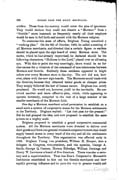
[p. 286]
artifice. Those from the country would enter the plea of ignorance.
They would declare they could not discern a "Mormon" from a
"Gentile" store inasmuch as frequently nearly all their employes
would be men in full faith and accord with the Mormon religion.
To overcome this state of affairs, Brigham Young conceived n "working plan." On the Sth of October, 1868, he called a meeting of all Mormon merchants, and directed that a certain figure or emblem should be placed upon the sign board of every Mormon store. This motto, which he had already improvised, he declared should be the following characters, "Holiness to the Lord," placed over an all seeing eye. With this to point the way unerringly, there would be no further excuse for a violation of the command of non—intercourse between Mormon and Gentile. Suddenly these emblems appeared in bright colors over every Mormon store in the city. The evil did not, however, abate with the new sign—boards. The Mormons would trade with the Gentiles, because they obtained better goods at cheaper prices. They simply followed the law of human nature. Brigham was sorely perplexed. He would not, however, yield to the inevitable. He contrived another and more effective plan, which, while appearing to operate favorably, conspired to tho ruin of a large number of the smaller merchants of the Mormon faith.
One day a Mormon merchant asked permission to establish on a small scale a system of cooperative stores for the Mormon settlements in the Territory. Brigham replied: " Let that pass for the present!" But he had grasped the idea, and now proposed to establish the same system on at mighty scale.
Brigham proposed to establish a grand cooperative commercial
system. All the Mormon merchants were directed to deliver over
their goods and form one general wholesale cooperative store that would
supply branch stores in every ward of the city and all the settlements
throughout the Territory. This organization was effected early in
1869. Brigham Young was president; William H. Hooper, then a
delegate in Congress, vicepresident, and the apostles, George A.,
Smith, George Q. Cannon, Horace Eldredge, William Jennings and
Henry W. Lawrence aboard of five directors. There was also a secretary
and a superintendent. Thus was Zion's Cooperative Mercantile
Institution established to blot out the Gentile merchants and their
rapidly growing influence and to pave the way to greater wealth and
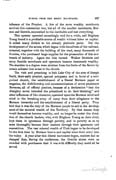
[p. 287]
influence of the Prophet. A few of the more wealthy merchants
survived this commercial war, but all of the smaller merchants,
Mormon and Gentile, succumbed to the inevitable and lost everything.
This system operated exceedingly well for a while, and Brigham Young found it a profitable source of wealth without labor or capital. It added many dollars to his already plethoric purse. But the development of the mines, which began with the advent of the railroad, attracted, together with the building of the road, many thousands of Gentiles, who purchased large supplies for the prosecution of this new branch of industry. Again the tide turned. Walker Brothers and many Gentile merchants and operators became immensely wealthy. The shackles in a degree were stricken from the limbs of the Saints by certain schisms that arose in the church.
The visit and preaching in Salt Lake City of the sous of Joseph Smith, their early prophet, against polygamy and in favor of a reorganized church, the establishment of a liberal Mormon paper or magazine, the disfellowship and excommunication of seven prominent Mormons, all of official position, because of a declaration "that the Almighty never intended the priesthood to do their thinking," and other influences of like character, operated upon the Mormon mind and aided in the breaking away of many from their allegiance to the Mormon hierarchy and the establishment of a liberal party. They held that it was the duty of the Mormon people to aid in the development of the mineral wealth of the Territory. By that means they would themselves become wealthy, and no longer be under the thraldom of the church leaders, who, with Brigham Young as their chief, kept them in ignorance through poverty, and in poverty so as to more thoroughly become their masters through their ignorance and superstition. The vast mineral wealth of Utah began to be developed for the first time by Mormon brawn and capital since their entry into the valley. A year after this liberal movement began, matters hud so changed that, during the conference, the Gentile stores were so crowded with purchasers that it was with difficulty they could all be served.
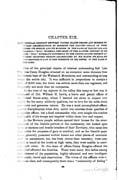
[p. 288]
CHAPTER XIX.
Camp douglas—Conflict Between United States Troops And Mormon Officials—Assassinations By Mormons—The Danites—Origin of Thier Order—Its Mission and Its Murders In the Name of The Church and Religion—"Bill" Hickman, The Chief of the Danites—History of His Life—"Bill" Hickman's Confession To The Unitied States District Attorney—Eighteen Persons Assassinated By His Hands—He Kills His Own Brother–in–law In The Presence of His Sister, In The Name Of The Lord.
One of the principal objects of interest surrounding Salt Lake City was Camp Douglas, situated on an eminence some distance from eastern base of the Wahsateh Mountains, and commanding at long range the entire city. It was sufficient in proportions to contain a force of 2,000 men, but there was seldom more than one regiment, and frequently not more than six companies.
At the time of my sojourn in the valley this camp or fort was in command of Col. William H. Lewis, a brave and genial officer of the United States army, whom I learned not alone to respect very highly for his many soldierly qualities, but to love for his noble deeds and warm and generous nature. He was a most accomplished officer, a strict disciplinarian when duty called into exercise those qualities of a superior officer, but a kind commander, who ever sought the comfort and health of his troops and inspired within them love and respect.
As the Mormon people seldom opened their houses for the
entertainment of the Gentile portion of the community, but looked upon
them as enemies and hostile invaders of their Territory, who came into
their midst for purposes of gain or mischief, and as the Gentile population
generally possessed neither homes nor other places of entertainment
or amusement, hut, less from choice than necessity, were compelled
to board at the hotels at high rates, they were unable to entertain
each other. In this state of affairs Camp Douglas offered the
sole relief afforded the Gentiles. There were many fine ladies among
that element of the population, highly educated and very intelligent
from study, travel and observation. The wives of the officers were of
the same class, and consequently there was a "community of feeling"
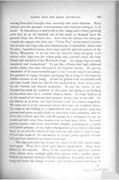
[p. 289]
among them that brought them naturally into close relations. Many
indeed were the pleasant entertainments and reunions indulged in by
us all. It was always a merry ride to the camp, and a hearty greeting
ever met us as we tumbled out of the coach or dropped upon the
ground from the drivers box. And then the dances, the merry–go–
rounds, the suppers, the wine, the "Valley Tan" or the States' product,
the smokes and long talks and reminiscences of battlefield, march and
bivouac; beautiful women, brave men, and the glorious scenery of the
Rocky Mountains, lit to our view by heaven's lamp swinging in its
silvery orbit high over the tallest peak that towered above the lofty
domes and minarets of the Wahsateh range. Ah, happy days of early
manhood and womanhood! Ye are like a flower that hath withered
on the plains that once bloomod in its fragrant bounty. Ye are the
reminders of the most beautiful part of our lives, the sap of our nature,
the garland of happy thoughts springing like a thing of life from the
hidden recesses of our being. Ye are the golden fruit we plucked with
our own hands from the tree of life, preserved lo, these many years
by our fondest and dearest memories. Ye are the visions of day
dreams lost amid the slumbers of the years, but rising at our bidding
on the other side, like a rainbow from a chasm. Ye come hack to us
in the sound ofthe stream that memory brings close to our side. Ye
are before us in every star that twinkles over tho wasted camp—fires.
We hear you in every mountain breeze that fans our wrinkled brows.
Ye come at the bidding of a faded flower that some sweet hand had
pressed and given us and which we laid away with tenderness, and the
little line written upon the torn—off margin of a newspaper by one we
loved and hid away from human eyes to feast upon alone. ln every
gentle impulse and sweet and tender thought, partaking of a higher
and holier purpose; in the fuller retrospection of our lives ye all come
back to us over the billows of time with the soft whir of angel wings.
Of all that camp of life and beauty of twenty years ago how few are
left and how scattered are those remaining!
The sign—post pointing beyond the limits of life tells where many
have gone, They have died upon Indian battle—fields. They have
fallen by the wayside. Many of the beautiful lio upon the western
hills, where early sunlight gilds their graves with a golden glory,
Others are mature mothers with fair daughters, who make merry with
song and dance the camps of today, just as their mothers did those of
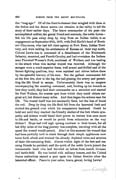
[p. 290]
the "1ong ago." Of all the Gentile element that mingled with them at
the frolics and the dance scarce one remains in the valley to tell the
story of their earlier days. The brave commander of the post—the
accomplished soldier, the genial friend and oomrade, the noble Lewis—
felt his life pass away drop by drop from an Indian bullet, in an
engagement on September 27th, 1878, with Dull Knife's band of Northern
Cheyennes, who had left their agency at Fort Reno, Indian Territory,
and were raiding the settlements of Kansas on their way north.
Colonel Lewis was in command of a detachment of the Nineteenth
Infantry, mounted, and Fourth Cavalry, and had overtaken the Indians
near Pnnished Woman's Fork, southeast of Wallace, and was leading
in the attack when this mortal wound was received. Although the
savages were a much superior force, well armed and drilled and of the
fairest lighting qualities, they were repulsed and driven before them
by the splendid bravery of his men. But the gallant commander fell
at the first fire, shot in the leg, the ball grazing the artery and permitting
the life blood to escape. Unfortunately there was no surgeon
accompanying the scouting command, and, binding up his wounds as
best they could, they laid their commander on a stretcher and started
for Fort Wallace, the nearest spot from which they could obtain surgical
aid, but distant many miles. And then began the solemn race for
life. The wound itself was not necessarily fatal, but the loss of blood
the evil. Drop by drop the life fluid fell from the lacerated limb and
stained the ground over which his companions hastened. Could he
hold out until they reached the friendly shelter of the fort where
sympathy and science would blend their power to restore him once more
to life and battle, or would he perish from exhaustion on the way
thither? Hope had well nigh sprung exultant in their breast, for all
but fifty miles of the long journey was complete, traveling with all the
speed the wound would permit. Alas! at this moment the wound that
had been partially held in check through their simple appliances now
burst forth afresh and drained the already depleted reins and arteries
of their life—sustaining fluid. Almost within sight of the fort and
rescuing friends he perished, and the spirit of the noble Lewis joined the
innumerable band who had traveled on before from march, bivouaic
and battle—field. He was buried with military honors, and the United
States authorities named a post upon the Indian frontier after the
lamented officer. Peace to your ashes, brave, genial, loving Lewis!
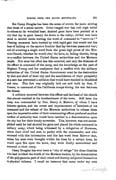
[p. 291]
But Camp Douglas has been the scene of events far more stirring than those of a socia] nature. Grim—visaged war has well nigh rolled its echoes at its wrinkled base; shotted guns have been pointed at a city that lay in quiet beauty far down in the valley; drilled men have stood in serried ranks waiting the word of command to "move on!" Fleeting moments have hurried by with rapid gait that would end the hour of halting on the narrow frontier that lay between peace and war; and all awaiting a single word from the great high priest of the Mormon Church, whether he would obey the laws, or, failing therein, bring on a conliict between the United States authorities and the Mormon people. Not once but often has this occurred, and only the firmness of the officer in command of the camp, and the knowledge on the part of Brigham Young and his coadjutors that a conflict with the military authorities of the United States Government must be the destruction by shot and shell of their city and the annihilation of their prosperity as a sect has prevented a collision that would have resulted in bloodshed and ruin. This fort was originally laid out and built by Gen. P. Conner, in command of the California troops during the war between the States.
A collision occurred between this officer and the head of the church ` that almost resulted in the bombardment of the town. Still later the camp was commanded by Gen. Henry A. Morrow, of whom I have hitherto spoken, and the arrest and imprisonment of members of his command and the refusal of the Mormon authorities to release them upon the imperative order of their commanding officer produced another conflict of authority that would have resulted in a demonstration upon the city but for their timely surrender. This, however, was not accomplished until he had shotted his guns and placed his whole command in military array, which being witnessed by a delegation of Mormons, whom their chief had sent to parley with the commander, and who returned with this infomation and the last word from Morrow that, unless his men were brought within his lines by a certain hour, he would open fire upon the town, they were finally surrendered and returned to their camp.
Camp Douglas has ever been a "city of refuge" for those Gentiles
who had invoked the wrath of the Mormon leaders, by the denunciation
of the polygmous part of their creed and thereby subjected themselves
To physical violence. I recall on instance that came under my own
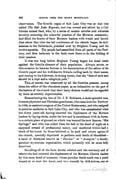
[p. 292]
observation. The Gentile organ of Salt Lake City was at that time
called The Salt Lake Reporter, and was owned and edited by u
Californian named Saul, who, by a series of caustic articles and editorials
severely censuring the unlawful practice of the Mormon community,
had filled the hearts of their Mormon leaders with wrath and hatred.
Just about that time the fall conference of the church began its daily
sessions in the Tabernacle, presided over by Brigham Young and the
twelve apostles. The people had assembled from all parts of the
Territory, and firm believers in the faith were there to do the bidding
their masters.
It was not long before Brigham Young began his usual tirade against the Gentile element of their population. Always severe, on this occasion he became furious in his denunciation of the editor of the Gentile paper and his well—known friends, calling each by their names, and stating to his followers, in strong terms, that the "fate of such men , should be a rope and a telegraph pole."
This, of course, was construed by all the Gentiles present, among them the editor of the obnoxious paper, as an intimation on the part of the leaders of the church that their hasty demise would not be regarded by them as entirely objectionable.
Remembering the fate of Dr. J. K. Robinson, a most splendid man, humane physician and Christian gentleman, who came into the Territory in 1864, as assistant surgeon of the United States army, and who resigned to practice medicine in Salt Lake City, and who was assassinated when but thirty years old, having incurred the displeasure of the Mormon leaders by laying claim, under the law and in accordance with its forms to a certain piece of ground on which was located the now famous "Hot Springs," and who was called from his bed in the dead of night on a supposed errand of professional mercy, and murdered within half a block of his house by those believed to be paid and sworn agents of the church, specially deputized to perform such deeds of bloodshed— a band of Mormons known as "Danites" or " Avengers," a bloody, peculiar, mysterious organization, which presently will be more fully described.
Recalling all of the facts herein related and the untimely end of
others who had incurred the displeasure of the Mormon Church leaders
by this same band of assassins, whose peculiar death—mark was a pistol
wound at or near the heart, and two wounds by dirk—knives, one on
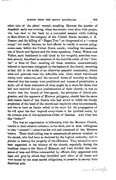
[p. 293]
either side of the pistol wound; recalling likewise the murder of
Brassfield early one evening, when the streets were alive with people,
who was shot in the back by a concealed assassin while walking
on Main Street in the company of the United States marshal, J. K.
Hosrnerg and the killing of "Negro Tom " on the ground of a "woman
scrape," but really because he had offered to testify in certain
polygamous cases before the United States courts; recalling the assassination
of Hutch and Spence and the three apostates, Potter, Wilson and
Walker, each butchered in cold blood by the vengeful, merciless
monsters already described as members of the horrible order of the
" Danites" or Sons of Dan; recalling all these murders, conscientiously
believed to have been instigated by the leaders of the church, occurring
as they did in the midst of an otherwise peaceful community, where
order and quietude were the inflexible rule, when street brawls and
rioting were unknown, and the outward forms of morality so closely
observed that bar—rooms were prohibited and houses of prostitution a
myth—all of them reminders of what might be in store for those who
had now received the open condemnation of their church—it was no
wonder that the friends of free speech, the advocates of liberal
progression, and the opposers of Mormon polygamy, should fear the same
dark unseen hand of the Danite who had sworn to fulfill the bloody
prophesies of the head of the church and implicitly obey his commands.
and who in turn as leader relied in the main for the propagation of
his will upon the fear inspired everywhere in his spiritual realm, by
the crimson acts of this mysterious Order of Danites. And what was
this "Order?"
This was an organization in fellowship with the Mormon Church, reliable in their absolute adhesion to the faith, and in their willingness to obey "counsel" otherwise the will and command of the Mormon leaders. Their chief calling was to assassinate all persons inimical to the church, who had been so declared by the highest authority, and to plunder or destroy the property of the offenders. They are said to have been organized in the infancy of the church, especially during the troublous times in the State of Missouri, and were divided into companies of tens and fifties oornmanded by oilicers duly appointed with signs and grip by which they identified each other at all times, and were bound by the most sacred obligations, to preserve in secresy their diabolical acts.
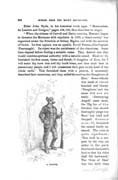
[p. 294]
Elder John Hyde, in his historical work upon "Mormonism, its Leaders and Designs," pages. 104, 105, thus describes its origin:
"When the citizens of Carroll and Davis counties, Missouri, began to threaten the Mormons with expulsion in 1838, a 'death society was organized under the direction of Sidney Rigdon and with the sanction of Smith. Its first captain was an apostle, David Patten, alias Captain 'Fearnaught'. Its object was the punishment of the obnoxious. Some time elapsed before finding a suitable name. They desired one that would combine spiritual authority with a suitable sound. Micah iv: 13, furnished the first name, 'Arise and thresh, O daughter of Zion, for I will make thy horn iron and thy hoofs brass, and thou shalt beat in pieces many people, and I will consecrate their gain to the Lord of the whole earth' This furnished them with a pretext, it accurately described their intentions, and they called themselves the 'Daughters of Zion.' Some ridicule was made at these bearded and bloody 'Daughters,' and the name did not sit easily. 'Destroying Ange1s' came next; the 'Big fan of the thresher that should thoroughly purge the floor,` was tried and dropped. Genesis XLIX: 17, furnished the named finally assumed. The verse is quite significant: 'Dan shall be a serpent by the way, an adder in the path that biteth the horses's heel so that his rider shall fall backward.' The 'Sons of Dan' was the style they
A DANITE.
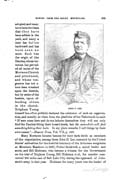
[p. 295]
JOHN D. LEE.
adopted,and many have been the times that they have been adders in the path, and many a man has fallen backward and has been seen no more. Such was the origin of the Danites, whose terrorism has pervaded all ranks of the Mormon Church and priesthood, and whose vengeance has not alone been wreaked upon the Gentile, but by order of the leaders, upon offending elders in the church. Brigham Young himself has often publicly declared the existence of such an organization, and notably so when from the platform of the Tabernacle he said: "If men come here and do not behave themselves they will not only find the Danites biting their horse's heels, but the scoundrels will find something biting their heels. In my plain remarks I call things by their own names." —Deseret News, Vol. VII, p. 143. Many Mormons became famous for their dark deeds as members
of this organization, among them John D. Lee, executed by the United
States' authorities for the horrible butchery of the Arkansas emigrants at Mountain Meadows in 1857; Porter Rockwell, a noted leader and scout, and Bill Hickman, who became a witness for the Government
on the trial of Brigham Young, Bill Hickman et al., for murder committed 200 miles east of Salt Lake City during the approach of Johnston's army in that year. Hickman for many years was the leader of

[p. 296]
the Danites, or Avenging Angels, and George C. Bates, as United
States district attorney for Utah, states that while preparing for trial
upon that indictment, it
became his duty to examine the
witness, Hickman, privately,
with a view of ascertaining
the nature and extent of his
testimony and its credibility.
As an illustration of the
character and ferocity of the men
composing this band of
"Destroying Angels of the
Lord," I quote a part of the
statement made by the district
attorney relating to this
witness:
BILL HICKMAN.
"This chief of the Danites
was the most extraordinary
human being that I have ever
yet seen in all my professional
and official life, reaching
back half a century. Of
course, as he had turned
State's evidence, and was to
be permitted to escape all punishment for his crime, and as he was
dependent to a great degree on my recommendation for mercy, he was
harmless and obsequious to the last degree, and I felt absolutely safe
in all my long intercourse with him, which lasted some two or three
years, all the time that I was United States district attorney, and
down to March, 1873. On closing the door I took my seat on the bed,
pencil in hand, and Bill took the only chair. As I began I took a
careful look at my witness, companion and cooperator in the prosecution
of President Young, and never can I forget that portrait. About
six feet high, he was an immense mass of muscle and flesh, with huge
arms and legs, very dark complexion, heavy eyebrows; his short
bristling hair, dark gray, coming down over his low brow and cut like that
of a Comanche Indian, directly square across his forehead, an immense
bull neck, with a skin like that of a rhinoceros, hands like iron,
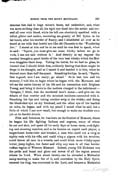
[p. 297]
immense feet clad in huge miner's boots, red undershirt, and, what
was more striking than all, his right eye fixed into the socket and covered
all over with blood, while his left one absolutely sparkled with a
hellish glitter and malice, reminding me greatly of Bill Sykes in his
last hours, after his murder of Nancy, and I shuddered all over as he
stared at me with that horrid eye like old Chouettsin the 'Wandering
Jew.' I stared at him and he at me until he was first to speak, when
he said: 'Squire, you must give me some whisky before we go to
work, I can not talk without it.' And directly at my request the
marshal brought a quart bottle of the very best whisky which the
Mormon druggists there keep. Taking the bottle, for we had no glass, he
insisted that I should drink first, evidently fearing that there might be
drugs in his draught, and so I tasted it and handed it to him, when he
drained more than half the quart. Smacking his lips, he said, 'Squire,
that is good; now I am ready; go ahead.' So to test him and his
memory, I told him to begin where he began with the Mormons and
tell me the entire history of his life and his connection with Brigham
Young, and bring it down to the matters charged in the indictment—
Sprague, I think, was the murdered man's name—and give me the
details of that murder and the minutest incidents connected with it.
Smacking his lips and taking another swig at the whisky, and fixing
the blood-shot eye on my forehead, and the other eye of the basilisk
on mine, he began, and with my pencil I noted what he said, but a
little of which I can now recall, but enough to make me shudder even
yet at its fearful details.
First and foremost, he was born on the frontier of Missouri, where
he began his life fighting Indians and negroes, many of whom
he cut and shot, and spent all his early days at horse races, cock-fighting
and shooting matches, and so he became an expert card player, a
magnificent horse-rider and breaker, a man who could cut a twig at
eighty rods with his ride, and could wing a pigeon with his revolver,
could throw all men in a wrestle, and could drink more whisky squat
lower, jump higher, run faster and whip any man in all that border
rutlian region of Western Missouri. Indeed, young Bill Hickman was
the pride and boast and glory and terror of all the region around
where he lived. When about twenty-one he attended a Methodist
camp-meeting to make fun of it, and, overtaken by the Holy Spirit,
entered the ring, was converted to the Lord, and became a Methodist
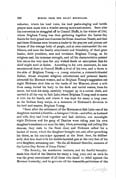
[p. 298]
exhorter, where his loud voice, his loud psalmsinging and terrific
prayer soon made him a wonder among saints and sinners. Soon after
his conversion he straggled off to Council Bluffs, in the winter of 1841,
where Brigham Young was then gathering together the Latter Day
Saints for their grand march across the Great American Desert, and then
and there Hickman soon became a leader in the prayers and praises and hymns of this strange body of people, and at once commanded the
confidence, and soon the hearty attachment and friendship, of their great
leader, their president, seer and revelator, Brigham Young, as his
religious zeal, his immense strength, and all his characteristics pointed
him out as the very man for any wicked deeds or enterprises that his
chief might need or desire. According to his own statement, he soon
encountered there at Council Bluffs a rival of his own, and a thorn in the side of Brigham Young—a young exhorter, a sixteenth-blooded Indian, whose eloquent religious exhortations and personal beauty
attracted the Mormon women, and at Brigham Young's suggestion one
night Hickman shot him on the banks of the Missouri, about a mile from camp, buried his body in the dark and turbid waters, from his canoe, but took his scalp, carefully wrapped up in a cotton cloth, and carried it all the way to Salt Lake, where Brigham Young used to caress it with his fat hands, and where it was kept for many a long year, as the Indians keep scalps, as a memento of Hickman's devotion to his lord and master, Brigham Young.
"Soon after the settlement of the Mormons at Salt Lake one of his daughters married a Gentile—a foreigner I think—and after, as husband and wife, they had lived together and had children, one moonlight night Hickman and his gang of Danites were riding past his own daughter's residence out near the lake, when, screaming and yelling like demons, they rode to the front door, and Hickman called for a bucket of water, which the daughter brought out, and, after quenching his thirst, as his son—in—law appeared at the front door, he deliberately shot him dead with his double—barreled gun at the very feet of his own daughter, screaming out: 'So die all damned Gentiles, enemies of the Latter-Day Saints of Jesus Christ.'
" His ferocity, his murderous instincts, and his fearful brutality
made him chief of the Danites for many a long year, and as such he
was the great executioner of all those who dared to rebel against the
Mormon hierarchy, and he gave me all the damnable particulars of the
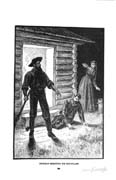
[p. unnumbered]
HICKMANK SHOOTING HIS SON-IN-LAW.
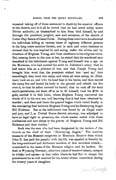
[p. 299]
repeated taking off of those sentenced to death by his superior ofHcers in the church, and in it all he vowed that he had acted solely under Divine authority, as transmitted to him from God himself, by and through the president, prophet, seer and revelator, of the chnrch of Latter-Day Saints of Jesus Christ. During these interviews he admitted his individual killing at various times of eighteen different persons in the long years anterior thereto, and in each and every instance lie claimed that he was inspired by and acting under the advice and by direction of Brigham Young, and from obedience to his religious views. But, coming down to the case at bar, he stated that the murdered man described in the indictment against Young and himself was a spy on the Mormons, who had carried the news to Johnston's army; that he had taken him as a prisoner of war, and that Joseph Young had brought him word that the president wished him 'used up;' that accordingly they went into camp, and when all were asleep, he (Hickman) took an ax, and with its head beat in his brains, and then moved the camp fire and buried his body in the ground and rebuilt the fire over it, so that its ashes covered his burial; that he took off the dead man's pantaloons, cut them off so as to fit himself, took his $780 in gold, carried it to Salt Lake, where Brigham Young converted the whole of it to his own use, well knowing that it had been obtained by murder; and then and there the quarrel began which ended finally in the everlasting feud between Brigham Young and his Destroying Angel Bill Hickman. But as the indictment was found by an illegal court and jury, and I, as United States district attorney, was adjudged to have no legal right to prosecute, the whole matter ended with these confessions and now sleeps in the graves of Brigham Young and Bill Hickman and their victims."
Such was the man who had been designated by the leaders of the church as the chief of their "Destroying Angels." The horrible massacre of the Missouri emigrants at Mountain Meadow from which John D. Lee paid the penalty with his life, was equaled in ferocity by the long-continued and deliberate murders of this merciless wretch— committed in the name of the Mormon religion and its leaders. He died in Wyoming Territory, after two years of besottcd misery, steeped in whisky and opium—in that valley where he had fled to escape the punishment he so well merited for his brutal crimes committed during his twenty years of slaughter.
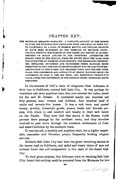
[p. 368]
CHAPTER XXV.
THE MOUNTAIN MEADOWS MASSACRE·—A COMPLETE ACCOUNT OF THE MURDER OF OVER ONE HUNDRED RICH EMIGRANTS FROM ARKANSAS ON THEIR WAY TO CALIFORNIA, BY A BAND OF MORMON MILITIA AND INDIANS—BELIEVED TO HAVE BEEN MURDERED AT THE COMMAND OF BRIGHAM YOUNG— YOUNG'S POSITIVE KNOWLEDGE OF THE CRIME—HIS REPORT AS SUPERlN— SUPERlNTENDENT OF INDIAN AFFAIRS IN THE TERRITORY ATTRIBUTES THE BLOODY DEED TO THE INDIANS, WHEN HE KNOWS THAT THE DARK CRIME WAS COMMITTED BY MORMONS AT HIS BIDDING—THE EMIGRANTS. UNSUSPECTING. BETRAYED. MURDERED AND PLUNDERED—THEIR MANGLED BODIES PERMITTED TO LIE UNBURIED TO BE DEVOURED BY WOLVES AND VULTURES— DESTRUCTION OF THE WOMEN AND CHILDREN FIRST, AND THE MEN AFTERWARD —THE CONFESSION AND AFFIDAVIT OF BISHOP KLINGEN SMITH—THE CONFESSION OF JOHN D. LEE—HIS TRIAL AND EXECUTION TWENTY—FIVE YEARS AFTER THE CONFESSION OF THE HEINOUS CRIME—THRILLING SCENES DESCRIBED.
IN the summer of 1857 a train of emigrants from Arkansas, on their way to California, entered Salt Lake City. It was perhaps the wealthiest and most populous train that ever entered the valley, bound for the new El Dorado. It numbered nearly one hundred and fifty persons, men, women and children; four hundred head of cattle and seventy-five horses. It was a rich train and carried money, jewelry, household goods, pianos, books and fire-side penates, with which to add comfort and beauty to their new homes on the Pacific. They were told that snows in the Sierras would prevent their passage by the northern route, and they therefore resolved to pass down through the southern settlements of Utah, and enter California by the southern route.
It was not only a wealthy and populous train, but a highly respectable, peaceable and Christian people, frequently holding religious services.
Hitherto Salt Lake City had been the great recruiting station on the barren road to California, and jaded and weary trains of men and animals found rest and recuperation in this oasis of the desert highway.
To their great surprise, this Arkansas train on reaching Salt Lake City, found that nothing could be procured from the Mormons for love
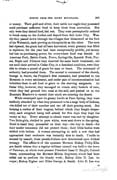
[p. 369]
or money. Their gold and silver, their cattle nor ought they possessed
could purchase sufficient food to keep them from starvation. Not
only were they denied food, but rest. They were peremptorily ordered
to break camp on the Jordan and depart from Salt Lake City. Wearily they passed down through the villages that blossomed at the foot
of the Wahsatch, each proving as inhospitable as the other. The corn
had ripened, the grain had all been harvested, every granary was filled
to repletion, for the year had been exceptionally prolific, yet money
had lost its purchasing power, for everywhere food was denied. At
American Fork, Battle Creek, Provo, Springville, Spanish Fork,
Payson, Nephi and Fillmore they received the same harsh treatment, and not until their arrival in Cedar City, in a famished condition, were they
able to obtain a pound of grain for man or beast. The command of
authority had preceded them. The second in command of the church,
George A. Smith, the Prophet's first counselor, had preached to the Mormons in every settlement, and under pain of excommunication had
forbidden them to sell food or grain to the starving emigrants. At
Cedar City, however, they managed to obtain sixty bushels of corn, which they had ground into meal at the mill, and pushed on to the
Mountain Meadows to recruit their stock ere entering the desert.
While encamped upon its grassy knolls at Cane Spring, they were
suddenly attacked by what they presumed to be a large body of Indians,
who killed ten of their number and ran off their grazing stock. But forming a cordon of their wagons, behind which they fought desperately, each emigrant being well armed, for five days they kept the
enemy at bay. Every attempt to obtain water was met by slaughter.
Two little girls, clothed in pure white, were sent down to the spring. Hand in hand they proceeded on their way—the way to death—for
their tender innocence did not protect them; their little bodies were
riddled with bullets. A woman attempting to milk a cow that had
approached their enclosure was instantly shot to death. Unable to
succeed by assault, these pseudo-Indians now determined upon wicked
strategy. The affidavit of the apostate Mormon Bishop Philip Klingen
Smith relates that a regular military council was held in the town
of Parowan, at which were present President Isaac C. Haight, Colonel Dame, commanding the Mormon Militia Regiment, which had been called out to perform the bloody work; Bishop John D. Lee, its
major; Bishop Rigbee and Elder George A. Smith. John D. Lee was
MOUNTAIN MEADOWS MASSACRE.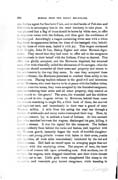
[p. 370]
also Indian agent for Southern Utah, and invited bands of Pah-utes and Pah-vents to accompany him in the cruel butchery to take place. It
was planned that a flag of truce should be borne by white men, to offer
to negotiate terms with the Indians, and thus gain the confidence of
the beseiged. Accordingly a wagon containing white men with a white flag made its appearance before the lines of the beseiged, who, beholding
the faces of white men, hailed it with joy. This wagon contained
J. C. Haight, John D. Lee, Bishop Rigbee and other Mormon dignitaries
They stated that they had come to offer aid to the emigrants
and intercede in their behalf with the Indians, if they so desired. This
offer was gladly accepted, and the Mormons departed, but returned
soon after with what they called the ultimatum of the savages—that the
emigrants should surrender all their arms and property and return to
the settlements by the way they came. In case they accepted these
hard conditions. the Mormons promised to conduct them safely to the
settlements. Placing implicit reliance in the good-will and intentions of the Mormons, who were known to be at peace with the Indian tribes,
cruel as were the terms, they were accepted by the famished emigrants,
and, surrendering their arms and all other property, they started on
their march to—the grave! The arms, the wounded and the children
were placed in two wagons driven by Mormons, behind them came
the women marching in single file, a little back of them, the starved
and worn out men, and immediately in their rear a guard of sixty
Mormon militia. A mile from the spring the road ran through a
thicket of scrub-oaks and many rocks intercepted their way. Here, by
previous concert, lay in ambush a band of Indians. At this moment Lee who marched between the wagons, discharged his gun, killing, it is said, a woman. It was the signal for the massacre. The Indians sprang suddenly from behind the rocks and bushes, and, together with
the Mormon guard, instantly began the work of horrible slaughter.
Old men and young pitiable women with babes in their arms, youths
and maidens, all were alike remorselessly butchered by the red and white demons. Hell hath no record upon its avenging pages that can
compare with this unpitying crime. The prayers of men, the tears
and wails of women fell upon unheeding ears. Sick mothers, too ili
to leave the wagons, were dragged therefrom and their white throats
cut from ear to ear. Little girls were slaughtered like sheep in the
shambles and venerable grey haired clergymen, while kneeling in
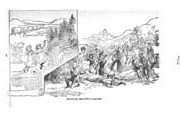
[p. 371]
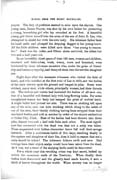
[p. 373]
prayer. The fury of perdition seemed to seize upon the slayers. One
young man, James Pearce, was shot by his own father for protecting
a young, beseeching girl who lay crouched at his feet. A beautiful
young girl threw herself into the arms of the son of John D. Lee, who attempted to shield her with his own body. His inhuman father bent
his head aside and plunged his dripping dagger in her young heart.
All the little children were killed save those "too young to remember."
Such was the order, and fifteen alone survived, the eldest but
two and a half years old.
In an incredibly short space of time 128 men, women and children, unarmed and defenseless, weak, weary, worn and famished, were butehered by these inhuman monsters who, under the guise of friendship and human sympathy, had decoyed them into the terrible slaughter pen.
Eight days after the massacre witnesses who visited the field of death, and who testified at the first trial of Lee in 1875, saw the bodies of the slain strewn upon the ground and heaped in piles. Some were stabbed, many shot, while others, principally women, had their throats cut. The wolves and ravens had lacerated the bodies of all save one, that of a beautiful well-formed lady with long flowing locks. For some unexplained reason her body had escaped the print of wolves' teeth. A single bullet had pierced her side. There was no clothing left upon any of the slain, save one torn stocking which clung to the ankle of one of the men, their bloody clothing having been stripped from their mutilated hodies, and sold at auction by order of the church authorities at Cedar City, Utah. Most of the bodies had been thrown into three piles, distant two and a half rods from each other. The most significant fact connected with the dead was that not a scalp was taken. Those acquainted with Indian chararcter know full well their savage instincts. After a continuous battle of five days, resulting finally in the capture and slaughter of their foe, does it hold to reason that not a scalp should he taken? The inference follows swift and sure. Had revenge been their object, scalps would have been taken from the dead. As it was, not a trace of the scalping knife could be discovered.
For a whole year this revolting crime was kept secret, locked up
within the mountain walls of the Territory. When finally their bodies were discovered and the ghastly deed made known, it sent a
thrill of horror throughout the world. When secrecy was no longer
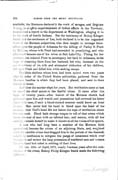
[p. 374]
available, the Mormons declared it the work of savages, and Brigham
Young, as ex officio superintendent of Indian affairs in the Territory, transmitted a report to the department at Washington, alleging it to
be the work of hostile Indians. But the testimony of Bishop Klingen Smith and the confession of Lee, both declared it to be the organized
work of the Mormon authorities, who thus sought to revenge
themselves upon the people of Arkansas for the killing of Parley B. Pratt
by Mclean, whose wife Pratt had succeeded in proselyting, and who
afterward became one of his wives at Salt Lake City. Pining for her
children she induced Pratt to accompany her back to Arkansas, in the
hope of obtaining them from her husband, but who, incensed at the
act of robbery of his wife and attempted abduction of his children,
fell upon Pratt and killed him while seeking escape.
The little children whose lives had been spared were two years after by order of the United States authorities, gathered from the Mormon families in which they had been placed, and sent to their friends at home.
And thus the murder slept for years. But retribution came at last to one of the chief actors in the fearful crime. It came after the lapse of twenty years—after honors of the Mormon church had gathered upon him and wealth and possessions had crowned his latter years with ease, if such a blood-stained monster could know an hour of ease. Man never laid his hand in blood upon the head of his brother, that God's hand did not fasten the rope of retribution about his own neck. Blood hath strange tongue to tell of that crime which stains the soul of man with an infernal hue; and nature, with all her oratory, exceeds herself to make it known in all the voices of her speech.
A man who had long been a member of the Mormon faith apostatized, became the citizen of an adjoining State, and, weighted with the terrible crime that dragged him to the portals of the damned, sought by confession to mitigate the pangs of conscience which ever brought in sad review the long procession of murdered men and women his own hand had aided in robbing of their lives.
On the 10th of April, 1871, nearly fourteen years after the commission of the crime, Bishop Philip Klingen Smith made the following affidavit:
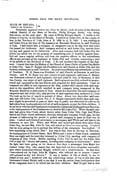
[p. 375]
STATE OF NEVADA, County of Lincoln.
Personally appeared before me, Peter B. Miller, clerk of court of the Seventh Judicial District of the State of Nevada, Philip Klingen Smith, who being duly sworn, on his oath says: My name is Philip Klingen Smith. I reside in the County of Lincoln, in the State of Nevada. I resided at Cedar City, in the county of
Iron, in the Territory of Utah, from A. D. 1852 to A. D. 1859. I was residing at
said Cedar City at the time of the massacre at Mountain Meadows, in said Territory
of Utah. I had heard that a company of emigrants was on its way from Salt Lake
City bound for California. Said company arrived at said Cedar City, tarried there
one day, and passed on for California. After said company had left Cedar City the militia was called out for the purpose of committing acts of hostility against them. Said call was a regular military call from the superior officers to the subordinate
officers and privates of the regiment at Cedar City and vicinity, composing a part of the militia of the Territory of Utah. I do not recollect the number of the regiment.
I was at that time the Bishop of the Church of Jesus Christ of Latter Day Saints
at Cedar City. Isaac P. Haight was President over said church at Cedar City and the southern settlements in said Territory. My position as Bishop was subordinate to that
of President. W. H. Dame was President of said Church at Parowan in said Iron County; said W. H. Dame was also colonel of said regiment; said Isaac C. Haight
was lieutenant—colonel of said regiment, and said John D. Lee, of Harmony, in said Iron County, was major of said regiment. Said regiment was duly ordered to muster, armed and equipped as the law directs and prepared for field operations. I had no
command nor office in said regiment at the time, neither did I march with said regiment
on the expedition which resulted in said company being massacred in the Mountain Meadows in said county of Iron. About five days after the said company of emigrants had left Cedar City, that portion of said regiment then mustered at Cedar City took up its line of march in pursuit of them. About two days after said company
had left Cedar City, Lieut-Col. J. C. Haight expressed a desire that said company
might be permitted to pass on their way in peace, but afterward he told me he had orders from headquarters to kill all of said emigrants except the little children. I do not know whether said headquarters meant the regimental headquarters at Parowan, or the headquarters of the Commander-in-chief at Salt Lake City. When the said company had got to Iron Creek, about twenty miles from Cedar City, Capt. Joel White started for Pinto Creek settlement, through which said company would pass, for the
purpose of influencing the people to permit said company to pass on their way in
peace. I asked and obtained permission to accompany said White and aid him in his endeavors to save life. When said White and myself got about three miles from Cedar City, we met Maj. John D. Lee, who asked us where we were going. I replied
that we were going to try to prevent the killing of the emigrants. Lee replied: "I have something to say about that." Lee was at that time on his way to Parowan, the headquarters of Colonel Dame. Said White and I went to Pinto Creek, remained there one night and the next day returned to Cedar City, meeting said company of
emigrants at Iron Creek. Before reaching Cedar City we met one Ira Allen, who told us that the "decree had passed, devoting said company to destruction." After the light had been going on for three or four days, a messenger from Major Lee reached Cedar City, who stated that the fight had not been altogether successful, upon which Lieutenant—Colonel Haight ordered out a reinforcement. At that time I was ordered out by Capt. John M. Higbee, who ordered me to muster "armed
and equipped as the law directs." It was a matter of life or death to me to
muster or not, and I mustered with the reinforcing troops. It was at this time that Lieutenant—Colonel Haight said to me that it was the orders from headquarters that all the emigrants were to be killed but the little children. Said Haight had at that
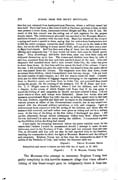
[p. 376]
time but just returned from headquarters at Parowan, where a military council had been held. There had been a like council held at Parowan, previous to that, at which were present Colonel Dame, Lieutenant-Colonel Haight and Maj. John D. Lee. The result of this first council was the calling out of said regiment for the purpose already stated. The reinforcement aforesaid was marched to the Mountain Meadows, and there formed a junction with the main body. Major Lee massed all the troops at a spring and made a speech to them, saying that his orders from headquarters were to kill the entire company, except the small children. I was not in the ranks at that time, but on the side talking to a man named Slade, and could not have seen a paper in Major Lee's hands. Said Lee then sent a flag of truce into the emigrant's camp. offering said emigrants that "if they would lay down their arms he would protect them." They accordingly laid down their arms, came out from their camp and delivered themselves up to Lee. The women and children were then, by order of said Lee, separated from the men and were marched ahead of the men. After said emigrants had marched about half a mile toward Cedar City, the order was given to shoot them down. At that time said Lee was at the head of the column; I was in the rear. I did not hear Lee give the order to fire, but heard it from the under officers as it was passed down the column. The emigrants were then shot down, except seventeen little children, which I immediately took into my charge. I do not know the total number of said company, as I did not stop to count the dead. I immediately put the little children in baggage wagons belonging to the regiment and took them to Hamlin's ranch, and from there to Cedar City, and procured them homes among the people. On the evening of the massacre, Col. W. H. Dame and Lieut. Col. J. C. Haight came to Hamlin's, where I had the children, and fell into a dispute, in the course of which Haight told Dame that if he was going to report the killing of said emigrants, he should not have ordered it done. I do not know where or when said troops were disbanded. About two weeks after said massacre occurred said Major Lee (who was also an Indian agent) went to Salt Lake City and, I believe, reported said fight and its results to the commander-in-chief. I was not present at either of the aforementioned councils, nor at any council connected with the aforesaid military operations, or with said company. I gave no orders except those connected with the saving of the children, and those after the massacre had occurred, and said orders were given as bishop and not in a military sense. At the time of the firing, at the first volley, I discharged my piece. I did not fire afterward, though several subsequent volleys were fired. After the first fire was delivered I at once set about saving the children. I commenced to gather up the children before the firing had ceased.
I have made the foregoing statement before the above entitled court for the reason that I believe I would be assassinated should I attempt to make the same before any court in the Territory of Utah. After said Lee returned from Salt Lake City, as aforesaid, said Lee told me that he had reported fully to the President, meaning the commander-in-chief, the fight at Mountain Meadows and the killing of said emigrants. Brigham Young was at that time the commander-in-chief of the militia of the Territory of Utah; and further the deponent saith not.
(Signed.) Phillip Klingen Smith. Subscribed and sworn to before me this 10th day of April, A. D. 1871. (Signed.) P. B. Miller, County Clerk.
The Mormons who attempt to exonerate Brigham Young from
guilty complicity in this horrible massacre allege that when offered a
tithing of this blood-bought gain, he indignantly threw it from him.
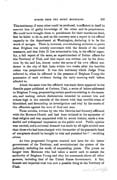
[p. 377]
This testimony, if none other could be produced, is sufficient in itself to convict him of guilty knowledge of the crime and its perpetrators.
He could have brought them to punishment for their murderous deed,
but he failed to do so, and on the contrary sent a report in his official capacity to the department at Washington, declaring it to be the work of savages. There is, however, overwhelming evidence to prove that Brigham was entirely conversant with the details of the cruel massacre, and that John D. Lee submitted to him, in his official capacity, a full report of the same, as superintendent of Indian affairs for
the Territory of Utah, and that report was written out by his direction by the said Lee, almost under the eaves of his own official residence in the city of Salt Lake within two weeks after the horrible crime was perpetrated. It was this testimony which Judge Titus referred to, when he affirmed in the presence of Brigham Young the possession of such evidence during the early morning walk before alluded to.
About the same time the aiiidavit was made there appeared in the Gentile paper published at Corinne, Utah, a series of letters addressed to Brigham Young, propounding certain questions relating to the massacre, and making certain declarations intended to connect him and others high in the councils of the church with that terrible crime of bloodshed, and demanding an investigation and trial by the courts of the offenders against the laws of God and man.
These articles, written by one who likewise had formerly affiliated with the Mormon Church and had been initiated in the mysteries of that religion and was acquainted with its secret history, made a wonderful and widespread impression on the public mind. Public opinion was excited, and a universal demand was made by all right-minded men that those who had been charged with the murder of the peaceable band of emigrants should be brought to trial and punished for this revolting crime.
As time progressed Congress enacted new laws for the better government of the Territory, and revolutionized the system of the judiciary, including the mode of empaneling jurors. The jurors no longer were Mormons who had taken a secret oath to sustain the authority of Brigham Young and obey his commands above all other powers, including that of the United States Government. A fair, honest and impartial trial was now a possible thing in the Territory of Utah.
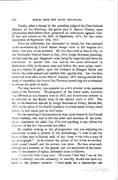
[p. 378]
Finally, after a charge by the presiding judge of the First Judicial District of the Territory, the grand jury of Beaver County, upon information filed before them, presented an indictment against John D. Lee and others, on the 24th of September, 1874, for the crime committed on September 16th, 1857.
After his indictment, Lee attempted to escape, but was captured in the mountains by United States troops while in the disguise of a miner with pick on his shoulder. He was first tried at Beaver City, in the Territorial District Court in July, 1875, Judge Boreman presiding. At this trial the jury disagreed—nine being for acquittal and three for conviction. A second trial was had on the same indictment in September, 1876, in the same court and before the same judge, resulting in a verdict of guilty, upon the evidence of Klingen Smith and others who were present and testified fully against him. Lee was then sentenced to be shot on the 26th of January, 1877, having elected that mode of execution, the laws of the Territory permitting the condemned to choose the mode of death.
The case, however, was appealed on a writ of error to the supreme court of the Territory. The judgment of the lower court, however, was affirmed at the January term in 1877, and its sentence ordered to he enforced at the `March term of the district court in 1877. The day of his execution was set by Judge Boreman on Friday, March 23d, 1877, at the place of the fearful butchery in which nearly twenty years before, he had taken part as chief actor.
On the morning of his execution he was taken thence by the United States marshal, who read to him the order and sentence of the court. At its conclusion he asked Lee if he had anything to say before the sentence of the law was carried into effect.
He replied, looking at the photographer who was adjusting his instrument to take a picture of the proceedings, "I wish to ask the favor of that man to furnish each of my three wives with a copy of my photograph." As he uttered the names of his wives he involuntarily posed himself and the picture was taken. He then arose and, looking for a moment at his guards and the spectators of the execution, to the number of eighty, addressed them as follows:
"I have but little to say here. Of course, I feel that I am on the
brink of eternity, and the solemnity of eternity should rest upon my
mind at the present moment. I have made out a manuscript—an
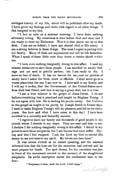
[p. 379]
abridged history of my life, which will be published after my death.
I have given my feelings and views with regard to all other things. I
feel resigned to my fate.
"I feel as calm as a summer morning. I have done nothing adversely wrong. My conscience is clear before God and man, and I am ready to meet my Redeemer. This it is that places me up on this field. I am not an infidel; I have not denied God or His mercy. I am a strong believer in these things. The most I regret is parting with my family. Many of them are unprotected and will be left fatherless. When I speak of these little ones they touch a tender chord within me.
"I have done nothing designedly wrong in this affair. I used my utmost endeavors to save those people. I am sacrified to satisfy feelings and am used to gratify parties; but I am ready to die. I have no fear of death. It has no terrors for me; and no particle of mercy have I asked for from court or officials. I shall never go to a worse place than the one I am now in. I have said to my family, and I will say it to-day, that the Government of the United States sacrifices their best friend, and that is saying a great deal, but it is true.
"I am a true believer in the gospel of Jesus Christ. I do not believe everything that is practiced and taught by Brigham Young. I do not agree with him. He is leading his people astray. But I believe in the gospel as taught in its purity by Joseph Smith in former days. I used to make Brigham Young's will my pleasure, and did so for thirty years. See how and what I have come to this day! I have been sacrified in a cowardly and dastardly manner.
"I regret to leave my family and thousands of good people in the church whom I cherish in my heart. They are near and dear to me. I declare I did nothing designedly wrong in this affair. I did all in my power to save those emigrants, but I am the one that must suffer. Having said this I feel resigned. I ask the Lord my God to extend His mercy to me and receive my spirit. My labors are here done.”
It was eleven o'clock as he ceased speaking, and the marshal informed him that the hour set for his execution had arrived and he must prepare for death. The spot chosen for his execution was just in front of the monument erected to the memory of the slaughtered emigrants. Its awful inscription stared the condemned man in the face:
"Vengeance is mine, saith the Lord; I will repay."
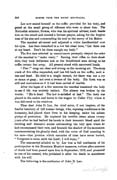
[p. 380]
Lee now seated himself on the coffin provided for his body, and gazed at the small group of riflemen who were to shoot him. The Methodist minister, Stokes, who was his spiritual adviser, knelt beside him on the sward and uttered a fervent prayer, asking for the forgiveness of his sins and commending his soul to the mercy of his Maker.
The marshal advanced and adjusted a white handkerchief over his eyes. Lee then remarked in a low but clear tone, "Let them aim at my heart. Don't let them mangle my body."
The five men selected as executioners promptly obeyed the order of the marshal to "make ready." Raising their rifles to their shoulders, they took deliberate aim at the blindfolded man sitting on his coffin twenty feet away. All present stood with uncovered heads.
"Fire!" rang out clear and strong on the morning air. The sharp crack of five rifles responded, and Lee fell back on the coffin, motionless and dead. He died in a single instant, for there was not a cry or moan or gasp; not even a tremor of the body. His form was as still and motionless as if it had been carved of marble.
After the lapse of a few minutes the marshal examined the body to see if life was entirely extinct. The silence was broken by the words: "He is dead. The law is satisfied at last." The body was placed in the casket and borne in the wagon to Cedar City where it was delivered to his relatives.
Thus died John D. Lee, the chief actor, if not inspirer, of the fearful butchery of 128 human beings, who, reposing confidence in his humanity, had placed their lives in his keeping, under his solemn pledge of protection. He expiated his terrible crime about twenty years after he had bathed his hands in their innocent blood amid the thrilling and dramatic scenes surrounding the very spot where he had encompassed their ruin, and beneath the shadow of the monument commemorating his ghastly deed, with the voice of God sounding in his ears—that promise which centuries of time have never hushed, " Vengence is mine, saith the Lord; I will repay."
The manuscript alluded to by Lee was a full confession of his participation in the Mountain Meadow massacre, written after sentence of death had been passed upon him in September, 1876, and presented to one of his counsel, who published it after his death in accordance with his will.
The following is the confession of John D. Lee:
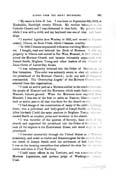
[p. 381]
"My name is John D. Lee. I was born on September 6th, 18l2, at Kaskaskia, Randolph county Illinois. My mother belonged to the Catholic Church and I was christened in that faith. My parents died while I was still a child, and my boyhood was one of trial and hardships.
"I married Agatha Ann Woolsey in 1833, and moved to Fayette county, Illinois, on Rock Creek, where I became wealthy.
" In 1836 I became acquainted with some traveling Mormon preachers. I bought, read and believed the Book of Mormon. I sold my property in Illinois and moved to Far West, Missouri, in 1837, where I joined the Mormon Church and became intimately acquainted with Joseph Smith, Brigham Young and other leaders of the church of Jesus Christ of Latter-Day Saints.
"I was subsequently initiated into the Order of Danites, at its first formation. This order was solemnly sworn to obey all orders of the priesthood of the Mormon Church; to do any and all things as commanded. The 'Destroying Angels' of the Mormon Church were selected from this organization.
"I took an active part as a Mormon soldier in the conflict between the people of Missouri and the Mormons, which made Jackson county, Missouri, historic ground. When the Mormons were expelled from Missouri, I was one of the first to settle at Nauvoo, Illinois, where I took an active part in all that was done for the church or city.
"I had charge of the construction of many of the public buildings there; was a policeman and body-guard of Joseph Smith, at Nauvoo. After his death I held the same position to Brigham Young, who suceeded Smith as prophet, priest and revelator in the church.
"I was recorder of the quorum of Seventy, head clerk of the church, and organized the priesthood into the Order of Seventies. I took all the degrees in the Endowment House, and stood high in the priesthood.
"I traveled extensively through the United States as a Mormon missionary, and acted as trader and financial agent for the church from the death of Joseph Smith until the settlement of Salt Lake City. I was on the locating committee that selected the sites for the various towns and cities in Utah Territory.
"I held many offices in the Territory, and was and was a member of the Mormon Legislature, and probate judge of Washington county, Utah.
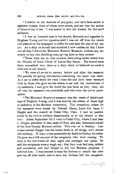
[p. 382]
"I believe in the doctrine of polygamy, and have been sealed to eighteen women, three of whom were sisters, and one was the mother of three of my wives. I was sealed to this old woman for her soul'S salvation.
"I was an honored man in the church, flattered and regarded by Brigham Young and the Apostles until I was cut off from the church and selected as the scapegoat to suffer for and bear the sins of my people. As a duty to myself and mankind I now confess all that I know and all that I did at the Mountain Meadow Massacre, without any animosity to any one, shielding none, giving facts as they existed.
"Those with me on that occasion were acting under orders from the Church of Jesus Christ of Latter Day Saints. The horrid deeds there committed were done as a duty which we believed we owed to God and to our church.
"We were all sworn to secrecy before and after the massacre. The penalty for giving information concerning the same was death. As I am to suffer death for what I then did and have been betrayed both by those who gave me the orders to act and the instructions of my assistants, I now give the world the true facts as they exist, and tell why the massacre was permitted, and who were the active participants.
"The Mountain Meadows massacre was the result of blind teachings of Brigham Young, and it was done by the orders of those high in authority in the Mormon community. The immediate orders for the massacre were issued by Colonel Dame, Lieut.-Col. Isaac C. Haight and the council at Cedar City, Utah. I had no position either in the civil or military departments, or in the church at that time. About September 7th I went to Cedar City, where I met Isaac C. Haight, president of that stake of Zion, and also lieutenant-colonel of the Iron County Mormon militia. This was on a Sunday. Lieutenant-colonel Haight was the leader there in all things, civil, clerical and military. It was a crime punishable by death to disobey his orders. He gave me a full account of the emigrants who were coming. We slept in the iron-works all that night and arranged our plans. He said the emigrants were a rough set; that they were had men, robbers and murderers, and had helped to kill the Mormon prophets. I believed him. I was ordered to raise the Indians to attack the train
and run off their cattle, and to have the Indians kill the emigrants.
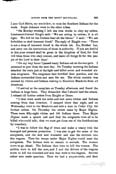
[p. 383]
I sent Carl Shirts, my son-in-law, to raise the Southern Indians for the work. Nephi Johnson went to the other tribes.
"On Monday evening I left the iron works to obey my orders. Lieutenant-Colonel Haight said: 'We are acting by orders; it is all right. We will let the Indians bear all the blame.' I said: 'We are forbidden to shed innocent blood.' The reply of Haight was: ' There is not a drop of innocent blood in the whole lot. Go, Brother Lee, and carry out the instructions of those in authority. If you are dutiful in this your reward shall be great in the kingdom of God, for God will bless those who obey counsel, and make all things fit for the people of the Lord in their days.'
"On my way home I passed many Indians out on the war-path. I promised to join them the next day. On Tuesday morning the Indians attacked the train just at daylight and killed seven and wounded sixteen emigrants. The emigrants then fortified their position, and the Indians surrounded them and sent for me. The whole country was aroused by whites and Indians rushing to Mountain Meadows from all directions.
"I arrived at the camp late on Tuesday afternoon and found the Indians in large force. They demanded that I should lead the attack. I refused till further orders from Haight or Dame.
"I then went south ten miles and met some whites and Indians coming from that direction. I camped there that night, and on Wednesday went to the Meadows and sent a man to Cedar City for further orders. On Thursday the orders came by Major Higbee. There were fifty-eight whites and 500 Indians there. Then Major Higbee made a speech and said that the emigrants were all to be killed who could talk; that we must get them out of the fortifications by treachery.
"I was to follow the flag of truce and make a treaty with the
besieged and promise protection. I was also to get the arms of the
emigrants, and the sick and wounded and also the children into
the wagons. Then the troops under Major Higbee would meet the
emigrants. The Indians were to remain in ambush. The women
were to go ahead. The Indians then were to kill the women. The
militia were to kill the men, and I and the drivers of the wagons
were to kill the wounded and sick that were in the wagons. Several
other men made speeches. Then we had a prayer-circle, and then
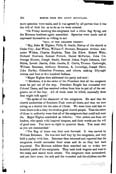
[p. 384]
more speeches were made, and it was agreed by all parties that it was
the will of God for us to do as we were ordered.
"On Friday morning the emigrants had a white flag flying, and the Mormon brethren again assembled. Speeches were made and all expressed themselves as willing to act.
"Roll of the Assassins Present.
"Maj. John M. Higbee; Philip K. Smith, Bishop of the church at Cedar City; Joel White, William C. Stewart, Benjamin Arthur, Alexander Wilden, Charles Hopkins, Tate Ira Ellew, Robert Wiley, Richard Harrison, Samuel Pollock, Daniel McFarlan, John Ure, George Hunter, Joseph Smith, Samuel Jukes, Nephi Johnson, Carl Shirts, Levett Jacobs, John Jacobs, E. Curtis, Thomas Cartwright, William Bateman, Anthony Stratton, A. Loveridge, Joseph Clews, John Durfey, Columbus Freeman, and others, making fifty-eight whites, and four or five hundred Indians.
"Major Higbee then addressed the party and said:
"'Brethren, it is the order of the President that all the emigrants must be put out of the way. President Haight has counseled with Colonel Dame, and has received orders from him to put all of the emigrants out of the way. All of them must be killed, especially those that might talk again.'
"He spoke of the character of the emigrants. He said that the church authorities of Southern Utah were all there, and that we were acting as a church for the sake of Christ. We were then told that we were there to do a duty we owed as good church people. That the orders of those in authority were that all of the emigrants that could talk must die. Major Higbee concluded as follows: 'Our orders are from our leaders, who speak with inspired tongues, and their words are the will of good men. You have no right to question them. You must obey as you are commanded.'
"The flag of truce was then sent forward. It was carried by
William Bateman. He was met half way by the emigrants, and they held a parley with him. Bateman then returned and reported that the emigrants would surrender their arms and do as they had been requested. The Mormon soldiers then marched out to within two hundred yards of the emigrants. They next took wagons and went tothe camp and stated their orders. The emigrants then surrendered.
and put their arms, the sick and the wounded and the children into the
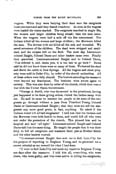
[p. 385]
wagons. While they were burying their dead men the emigrants
burst into tears and said they feared treachery. As soon as the wagons
were loaded the trains started. The emigrants marched in single file,
the women and larger children being ahead; then the men came.
When the wagons were half a mile off the fire commenced. The
Indians killed all the women and large children; the Mormons killed
the men. The drivers with me killed all the sick and wounded. We
saved seventeen of the children. The dead were stripped and mutilated,
and the corpses left on the field. The next day Lieutenant
colonel Haight, Colonel Dame and other leaders came over. Finally
they quarreled. Lieutenant—colonel Haight said to Colonel Dame,'You ordered it, and, damn you, it is too late to go back!' Dame said he did not know there were so many of them. We buried the dead and drove the cattle to Iron Springs. All the wagons and other property were sold in Cedar City, by order of the church authorities. All
of these orders were fully obeyed. The horrors attending the massacre
were beyond my description. The brethren were sworn again to
secrecy. This was also done by order of the church, which then was at
war with the United States Government.
"George A. Smith, who was the second in the priesthood, having just happened to be there giving orders, visited the Indian camp with me. He said he came to instruct the people to let none of the emigrants go through without a pass from President Young, Colonel Dame or Lieutenant-colonel Haight; that they must not sell the emigrants any more good grain, in fact, anything. He asked if the Indians would kill all bad emigrants? I told him that the Indians and the Mormons were both hostile to them, and would kill all who were not under the protection of the church. This pleased him and he laughed and said 'all right.' Lieutenant—colonel Haight and Colonel Dame told him the same thing. He taught the people that it was their duty to kill all emigrants and massacre them just as Brother Smith and the other leaders wanted.
"Lieutenant—colonel Haight then sent me to Salt Lake City, for the purpose of reporting to Brigham Young, and he promised me a crown celestial as my reward for what I had done.
"I went to Salt Lake City, and made my report to Brigham Young ten days after the massacre. I told him all, everything, who were
there, who were guilty, and who were active in killing the emigrants;
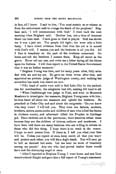
[p. 386]
in fact, all I knew. I said to him, 'You must sustain us or release us
from the endowment oath to avenge the death of the prophets.' Brigham
said, 'I will communicate with God.' I went back the next
morning when Brigham said: 'Brother Lee, not a drop of innocent blood has been shed. I have gone to God in prayer. God has shown me it was a just act. The people did right; but were only a little
hasty. I have direct evidence from God that the act is in accord
with God's will. I sustain you and the brethren in all you did. All
I fear is treachery on the part of the brethren concerned. Go
home and tell the brethren I sustain them. Keep all secret as the
grave. Never tell any one, and write me a letter laying all the blame
upon the Indians. I will then report to the United States Government
that it was an Indian massacre.'
"Brigham Young was then, and for many years after, fully satisfied with me and my act. He gave me three wives after that, and appointed me probate judge of Washington county, and nothing but cowardice has made him desert me now.
"Fifty head of cattle were sold in Salt Lake City by the authorities for merchandise; the emigrants had 450, making 500 head in all.
"When Cradlebaugh was judge in Utah, and went to Mountain Meadows to investigate the massacre, Brigham Young came with him; he then knew all about the massacre and upheld the brethren. He preached at Cedar City and said about the emigrants: 'Do you know who they were? I will tell you. They were the fathers, mothers, brothers, sisters, aunts, uncles and children of men who killed the Saints in Jackson county, and afterward killed the Prophet in Carthage jail. Their children are in the poorhouse; their relatives refuse them because they are the children of thieves, outlaws and murderers. I have been told there are many brethren who are willing to inform on those who did this thing. I hope there is no truth in the rumor. I hope no such person lives. If there is, I tell you what your fate will be. Unless you repent at once, keep secret all that you know and protect each other, you will die a dog's death. You will soon go to hell as damned lost souls. Let me hear no more of treachery among my people.' Any one who had proved traitor there would have met the destroying angel at once.
"After I reported to Brigham Young, I went home and met Lieutenant-colonel Haight and gave him a full report of Young's statement.
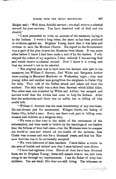
[p. 387]
Haight said: 'Well done, faithful servant; you shall receive a celestial reward for your services. You have deserved well of God and the church.'
"I next proceeded to write an account of the massacre, laying it to the Indians. I wrote a long letter, the same as has been produced in evidence against me. Brigham Young knew that it was false and written to save the Mormon Church. His report to the Government was a part of the plan to save the Mormons from blame. It was years after before I knew I had been made a tool of by the leaders. I only obeyed the orders of my superiors, I then believed I was serving God and would receive a celestial reward. Now I know it is wrong and that my reward is not to be celestial.
"The original plan was to have none but Indians take part in the massacre, but William C. Stewart, Joel White and Benjamin Arthur were coming to Mountain Meadows on Wednesday night; they met young Allen and another man going from the emigrants to Cedar City for help. They told of the Indian attack and asked aid from the settlers. The only reply was a shot from Stewart which killed Allen. The other man was wounded by White and Arthur, but escaped and carried word that the whites had come to help the Indians. After this the authorities said there was no safety but in killing all who could talk.
"William C. Stewart was the most bloodthirsty of any one there. He cut throats just for amusement. Klingen Smith, the bishop of Cedar City, killed a man. Every one there took part in killing men, women and children as a religious duty.
"We were at that time in the midst of the excitement of the reformation, and were made to believe by the teachings of our leaders that the fullness of time had come—that the Mormons were to conquer the world at once and inherit all the wealth of the universe; that Christ was to come and rule for a thousand years, and that the Mormon doctrine was to be universally accepted.
"We were followers of false teachers. I have fallen a victim to the arts of foolish and wicked men that I once believed were divine.
"I have had eighteen wives. Eleven of them have been divorced from me by Brigham Young; three still remain true to me, and have clung to me through my imprisonment. I am the father of sixty-four children. Ten are dead; fifty-four are still living. The witnesses on
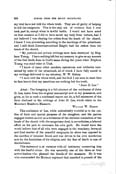
[p. 388]
my trial have not told the whole truth. They are all guilty of helping
to kill the emigrants. This is the only act of violence that I ever
took part in, except when in lawful battle. I would not have acted
on that occasion as I did to have saved my body from torture, had I
not believed I was obeying the orders from the heads of the church.
I knew I was proceeding according to the teachings of the priesthood,
and I still think Lieutenant-colonel Haight had his orders from the
heads of the church.
"My journals and private writings have been destroyed by Brigham Young. I have nothing left but my memory to give as my account of the foul deeds done in God's name during the years when Brigham Young was chief ruler in Utah.
"I know of many other murders, castrations and robberies committed by order of the priesthood, all of which I have fully stated in my writings delivered to my attorney, W. W. Bishop.
"I have told the whole truth, and the God I am soon to meet face to face knows that my assertions are nothing but the truth.
"JOHN D. LEE." Attest: The foregoing is a full abstract of the confession of John D. Lee, taken from the original manuscript now in my possession, and gives, so far as such a condensed report can do, a full statement of the facts disclosed in the writings of John D. Lee, which relate to the Mountain Meadows Massacre. WILLIAM W. BISHOP.
This confession of Lee, while undoubtedly truthful as to the outline of facts and special purposes of the slaughter, and the parties engaged therein as well as a revelation of the intimate connection of the heads of the church with the sanguinary deed, is, nevertheless, a labored effort on his part to extenuate his own guilt. He would have the world believe that of all who were engaged in the treachery, betrayal and final murder of the peaceful emigrants, he alone was opposed to the sacrifice of innocent blood, and was driven to his own murderous acts by the fanaticism of his religion, and the fear of death in case of disobedience.
This statement is at variance with all testimony connecting him
with the fearful crime. He was assuredly one of the three or four active leaders who planned the details of the massacre. He it was who commanded the Mormon regiment that marched in pursuit of the
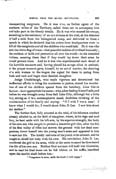
[p. 389]
unsuspecting emigrants. He it was who, as Indian agent of the
southern tribes of the Territory, called them out to accompany him
and take part in the bloody details. He it was who massed his troops,
according to the testimony of an eye-witness at his trial, at the distance
of half a mile from the beleaguered camp, and delivered to them a
speech in which he declared that his orders from headquarters were to
kill all the emigrants and all the children who could talk. He it was who sent the white flag of truce—that peaceful emblem of civilized humanity ;
the emblem of faith and protection all over the world—to his intended
victims, assuring them that if they would lay down their arms he
would protect them. And he it was who superintended each detail of
the horrible massacre and, having placed his savage allies in ambush, at the proper moment gave, himself, by an act of murder, the shooting of a sick woman in the wagon the signal for them to spring from bush and rock and begin their fiendish slaughter.
Judge Cradlebaugh, who made vigorous and determined but ineffectual efforts to bring the murderers to justice, stated his recollection of one of the children spared from the butchery, John Calvin Sorrow—how appropriate his name—who, after finding himself safe, and before he was brought away from Salt Lake City, although but a little boy, sitting as if in a contemplative mood, doubtless thinking of the extermination of his family and saying: "O I wish I was a man! I know what I would do; I would shoot John D. Lee. I saw him shoot my mother."
The further fact, fully attested at the trial, of his inhuman conduct already alluded to, on the field of slaughter, where, in his rage and mad fury, he bent aside with his left arm, by his superior strength, the body of his own son who sought to protect a beautiful girl who, after the fire of the first volley of rifles had strewn the ground with her dead companions, threw herself into the young man's arms and appealed to him to save her life. The kindly instincts of the youth were aroused, and he sought to shield her body with his own. His own father, John D. Lee, murdered the girl in his arms, while at the same moment he threatened the life of his own son. Neither God nor man will hold him blameless, and he read his final doom ere he fell lifeless on his coffin, inscribed upon the marble shaft before him:
"Vengeance is mine, saith the Lord; I will repay."